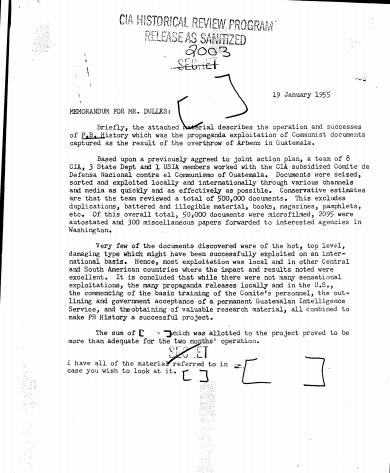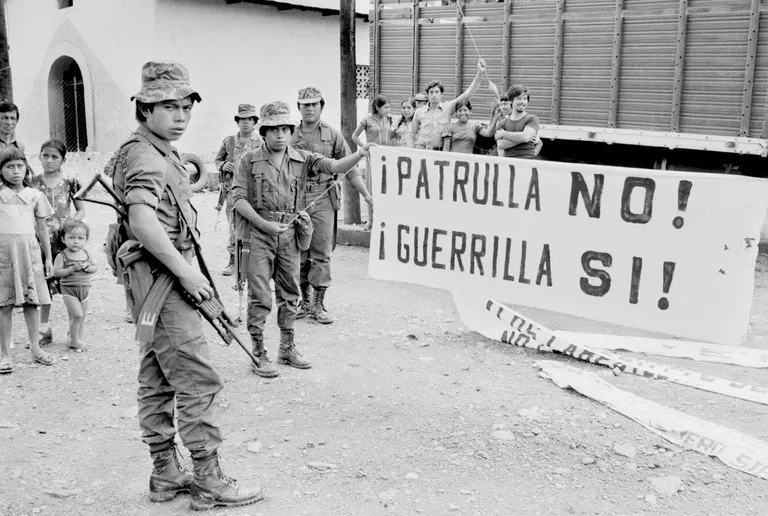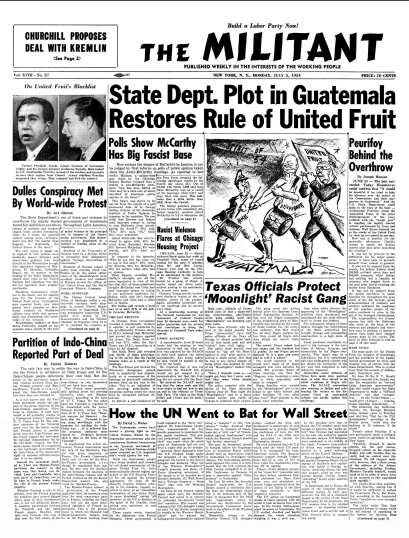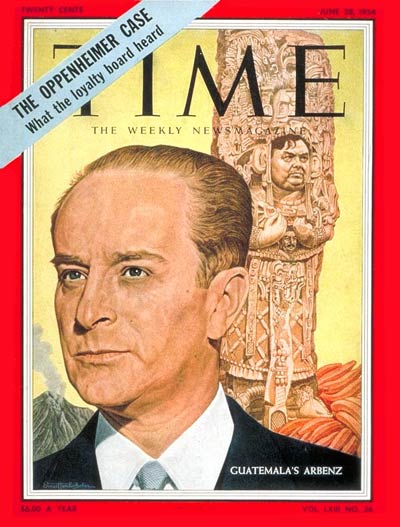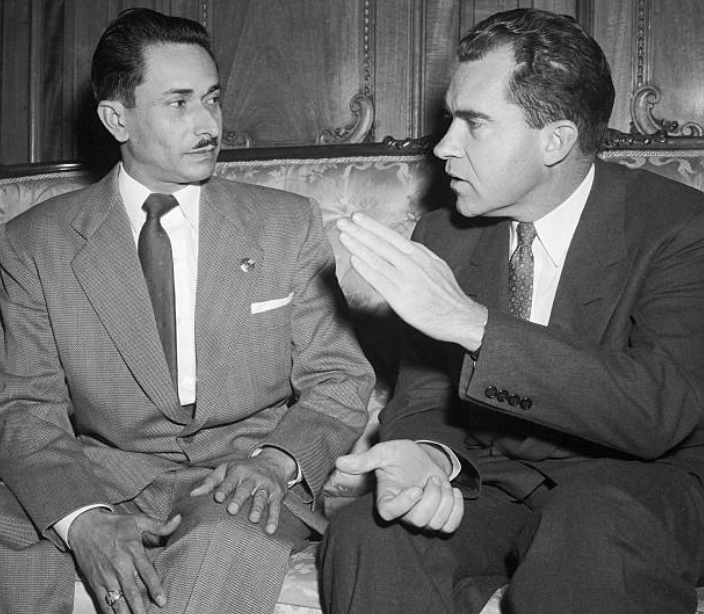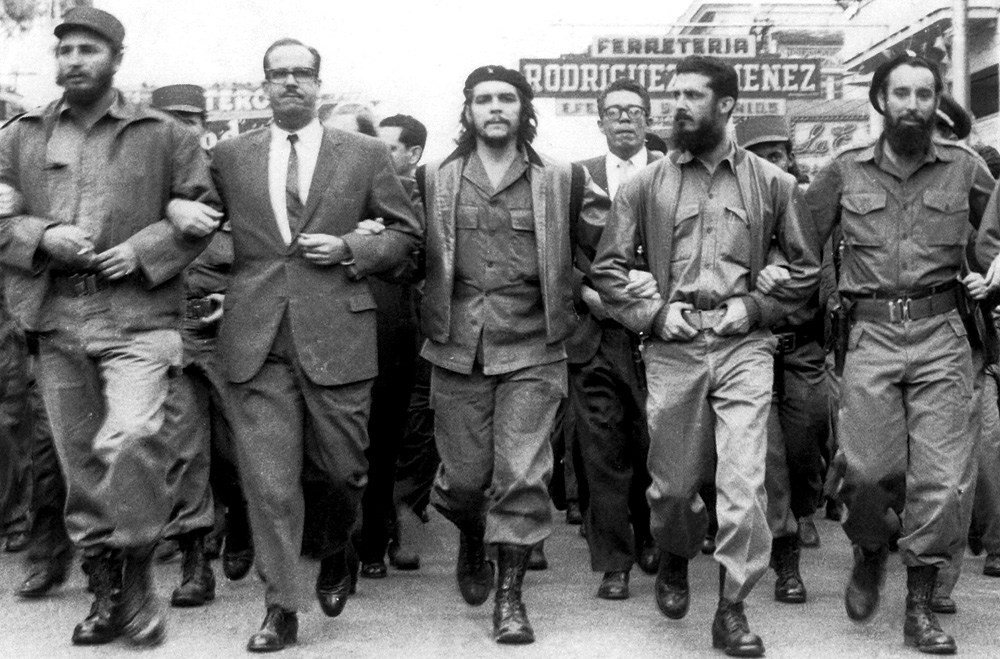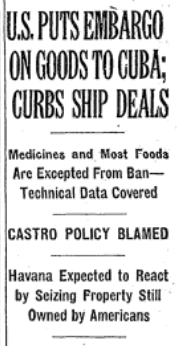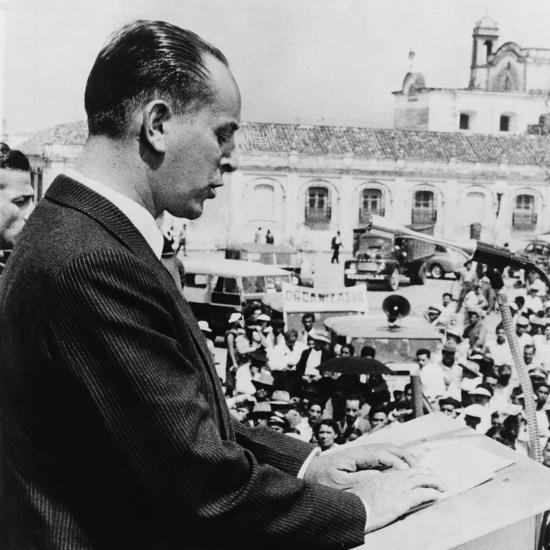
President Arbenz address his followers , June 18, 1954
"The United Fruit Company and US monopolies, together with US ruling circles are responsible for...We know how representatives of workers and peasants have been murdered in occupied cities, especially in Bananers [Banana Republics]. That was an act of vengeance by the United Fruit Company."
-President Arbenz Resignation Speech June 27, 1954
